-
Product Name
RPL3 antibody
- Documents
-
Description
RPL3 Rabbit Polyclonal antibody. Positive IHC detected in human prostate cancer tissue. Positive IF detected in HepG2 cells. Positive IP detected in mouse kidney tissue. Positive WB detected in mouse placenta tissue, HEK-293 cells, HeLa cells, human kidney tissue, human placenta tissue, Jurkat cells, K-562 cells, mouse brain tissue, mouse kidney tissue, mouse lung tissue, mouse ovary tissue, mouse pancreas tissue, Raji cells. Observed molecular weight by Western-blot: 46 kDa
-
Tested applications
ELISA, IHC, IF, IP, WB
-
Species reactivity
Human, Mouse; other species not tested.
-
Alternative names
60S ribosomal protein L3 antibody; ribosomal protein L3 antibody; RPL3 antibody; TARBP B antibody
-
Isotype
Rabbit IgG
-
Preparation
This antibody was obtained by immunization of RPL3 recombinant protein (Accession Number: NM_000967). Purification method: Antigen affinity purified.
-
Clonality
Polyclonal
-
Formulation
PBS with 0.1% sodium azide and 50% glycerol pH 7.3.
-
Storage instructions
Store at -20℃. DO NOT ALIQUOT
-
Applications
Recommended Dilution:
WB: 1:500-1:5000
IP: 1:200-1:2000
IHC: 1:10-1:100
IF: 1:20-1:200
-
Validations
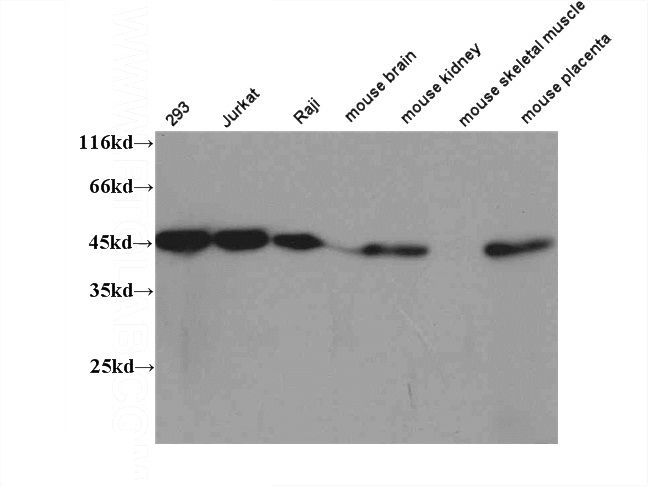
WB results of Catalog No:114887(RPL3 antibody) on several lysates.
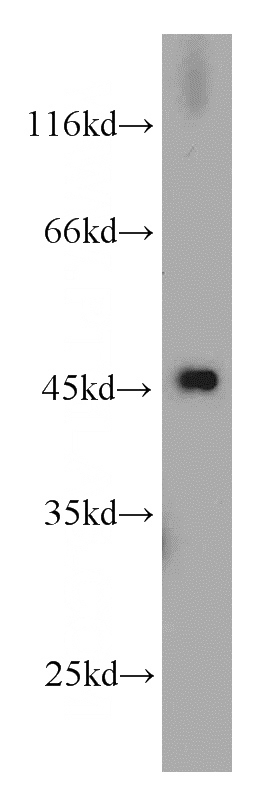
mouse placenta tissue were subjected to SDS PAGE followed by western blot with Catalog No:114887(RPL3 antibody) at dilution of 1:1000
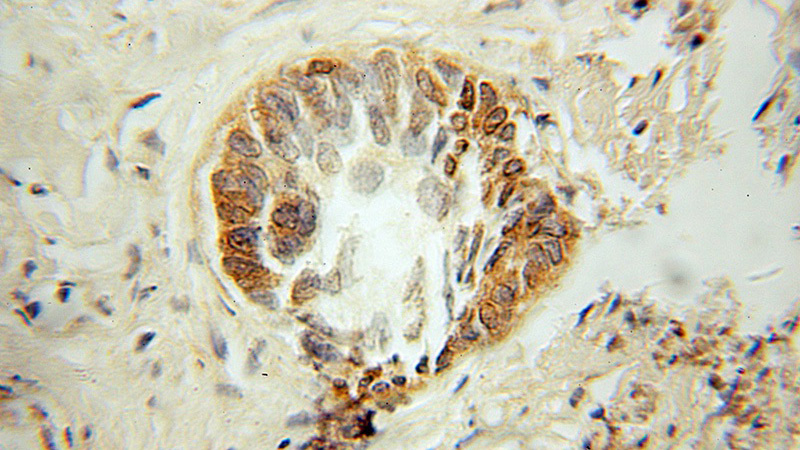
Immunohistochemical of paraffin-embedded human prostate cancer using Catalog No:114887(RPL3 antibody) at dilution of 1:10 (under 10x lens)
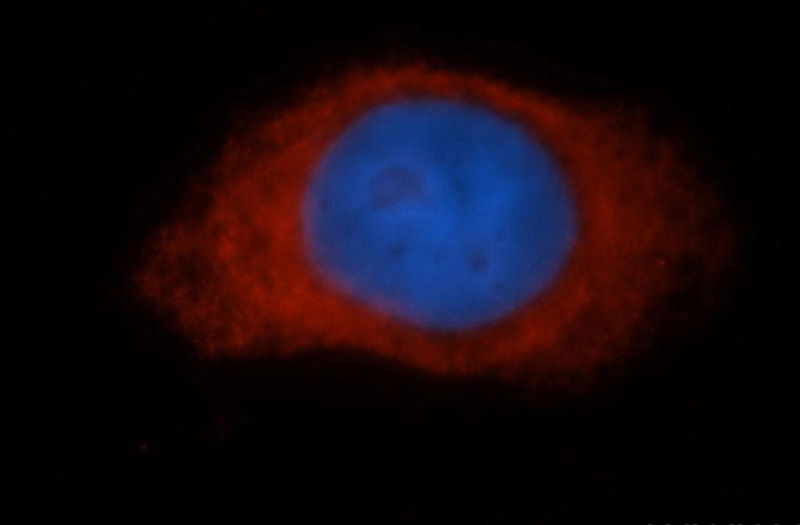
Immunofluorescent analysis of HepG2 cells, using RPL3 antibody Catalog No:114887 at 1:50 dilution and Rhodamine-labeled goat anti-rabbit IgG (red). Blue pseudocolor = DAPI (fluorescent DNA dye).
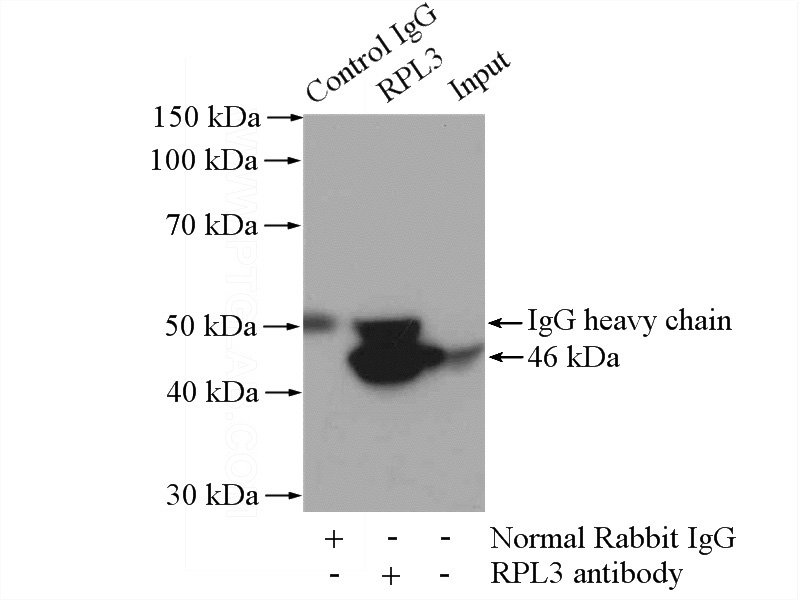
IP Result of anti-RPL3 (IP:Catalog No:114887, 4ug; Detection:Catalog No:114887 1:500) with mouse kidney tissue lysate 4000ug.
-
Background
Ribosomes, the complexes that catalyze protein synthesis, consist of a small 40S subunit and a large 60S subunit. Together these subunits are composed of 4 RNA species and approximately 80 structurally distinct proteins. RPL3, also named as TARBP-B and MGC104284, belongs to the ribosomal protein L3P family. This protein is a component of the 60S subunit. It can bind to the HIV-1 TAR mRNA, and it has been suggested that the protein contributes to tat-mediated transactivation. As is typical for genes encoding ribosomal proteins, there are multiple processed pseudogenes of this gene dispersed through the genome. This is a rabbit polyclonal antibody raised against the C terminus of human RPL3.
Related Products / Services
Please note: All products are "FOR RESEARCH USE ONLY AND ARE NOT INTENDED FOR DIAGNOSTIC OR THERAPEUTIC USE"
